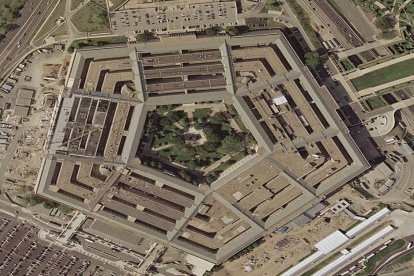Twitter helped cover up military operations to influence public opinion
Lee Fang said there are emails that show that high-level executives of the social network were aware of the military propaganda accounts.

(Pentagon/ Wikimedia Commons)
The Twitter Files continue to be the talk of the town. For this eighth installment, journalist Lee Fang took over and explained that he would share how Twitter helped in "military influence operations."
"Despite promises to shut down covert state propaganda networks, Twitter docs show that the social media giant directly assisted the U.S. military's influence operations," he wrote in the first post in the entire series.
The journalist explained that for several years now Twitter has ensured that it makes "concerted efforts" to prevent its platform from being manipulated with misleading state-backed propaganda.
In fact, Fang showed a document in which the social network testified before Congress about its commitment. However, everything indicates this not to be true.
"Behind the scenes, Twitter gave approval and special protection to the US military's online psychological influence ops. Despite knowledge that Pentagon propaganda accounts used covert identities, Twitter did not suspend many for about two years or more. Some remain active," he wrote.
One of the pieces of evidence shared by the journalist was an email in which a US Central Command official (Centcom) sent the social network a list of more than five dozen Middle Eastern accounts that were being used to "amplify certain messages," asked to verify one of them and was given "whitelisting" abilities for others.
Supposedly, that same day Twitter helped give some of them more visibility and exempted them from spam/abuse flags.
Fang further explained that the accounts were initially affiliated with the government, but the link was later hidden from users.
The journalist also reported that various emails from 2020 show that high-level Twitter executives were aware of the secret military propaganda accounts.
"Senior Twitter executives/advocates discussed the covert network and even re-circulated Centcom's 2017 list and shared another list of 157 undisclosed Pentagon accounts, again focused primarily on Middle East military issues," he said.
The social network apparently pushed narratives against several countries, including China, Russia and Iran.
"They accused Iran of 'threatening Iraq's water security and flooding the country with methamphetamine,' and of taking the organs of Afghan refugees," the journalist revealed.
Fang ended the most recent installment by revealing that he wrote an article which gives more details on the subject and there he explained the Pentagon had been using the social network for at least five years.












